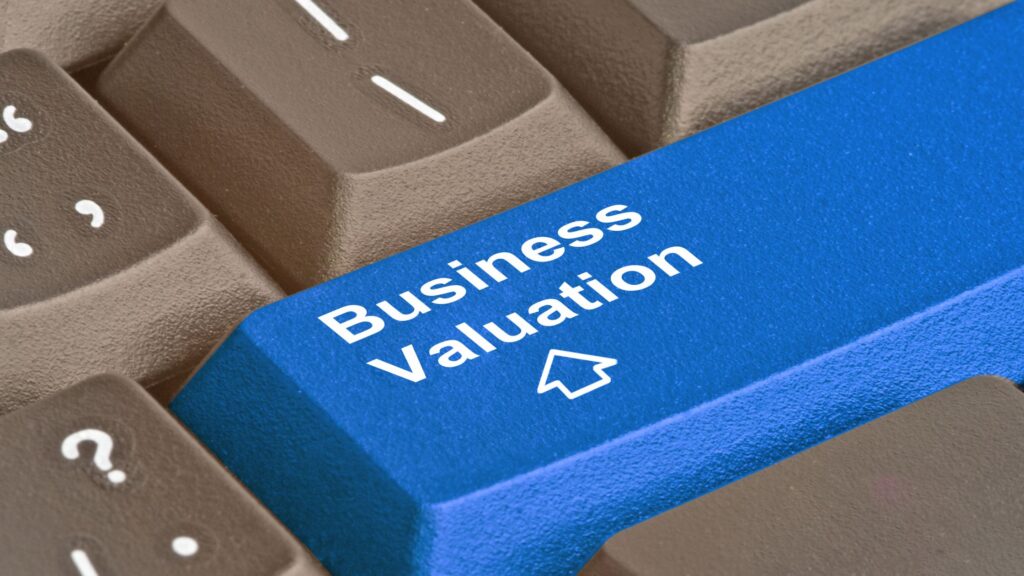Every business owner eventually reaches a point where knowing the exact value of their company becomes essential. Whether preparing for a sale, attracting investors, planning succession, or making strategic decisions, a precise valuation ensures you operate from a position of knowledge and confidence. Business valuation services provide the insights and clarity required to assess your company’s market position and long-term potential.
This comprehensive guide explores why accurate valuations matter, what factors influence them, and how professional expertise can make a difference.

Table of Contents
Toggle1. Importance of Business Valuation Services
In today’s competitive landscape, understanding your company’s worth is no longer optional—it’s a strategic necessity. Business valuation services go beyond simple number crunching; they analyze your company’s financial health, growth prospects, and market environment. By having an accurate valuation, you:
- Gain clarity on your company’s strengths and weaknesses.
- Build credibility with lenders, investors, and stakeholders.
- Make informed decisions for mergers, acquisitions, or strategic shifts.
2. When You Should Seek a Valuation
There are several critical moments when hiring professionals for business valuation services becomes crucial:
- Mergers and Acquisitions – Professional business valuation services help determine a fair market value, ensuring transparent negotiations and balanced deal structures that benefit all parties involved.
- Investment Pitches – Accurate valuation figures instill confidence in potential investors, showcasing your company’s true worth and growth potential during funding discussions.
- Succession Planning – A well-conducted valuation establishes a clear, defensible value for ownership transfers, whether for family succession, management buyouts, or inheritance purposes.
- Litigation Support – Expert valuations provide credible, court-admissible data in legal cases such as partnership disputes, shareholder disagreements, or divorce settlements involving business assets.
- Strategic Planning – Valuation insights reveal your company’s strengths and weaknesses, guiding critical decisions for expansion, restructuring, or entering new markets.
Knowing the right time to get a valuation maximizes its impact and relevance.
3. Factors That Influence a Business Valuation
Business value depends on multiple interconnected elements. Financial performance plays a major role, but market trends, operational efficiency, and even leadership stability contribute significantly.
Revenue streams, profit margins, and customer loyalty can elevate a valuation, while high debt, declining sales, or operational inefficiencies can reduce it. Additionally, intangible assets like intellectual property, brand equity, and goodwill also affect the final figure. Learn more about Smart Financial Guidance.
4. Popular Valuation Methods
Professionals use a variety of methods to assess value, each suited to different industries and situations:
- Income Approach – Estimates value from projected future earnings, discounted to present value. Ideal for businesses with stable income streams.
- Market Approach – Compares your business to recently sold similar companies for a market-based value estimate. Works best with ample comparable sales data.
- Asset-Based Approach – Determines net asset value by subtracting liabilities from total assets. Common for asset-heavy businesses.
Choosing the right method depends on the purpose of the valuation and the nature of your business.

5. Benefits of Professional Valuation Services
Hiring experts for business valuation services offers numerous advantages:
- Objectivity – Provides unbiased, fact-based assessments, free from personal or emotional influence.
- Regulatory Compliance – Ensures valuations meet legal, tax, and accounting standards to avoid disputes.
- Negotiation Power – Strengthens leverage in deals by validating the company’s actual worth.
- Risk Assessment – Identifies vulnerabilities to help safeguard and grow future value.
6. Key Challenges and How to Overcome Them
Valuation accuracy can face obstacles such as incomplete records, fluctuating market conditions, and subjective interpretations of data. Overcoming these challenges requires:
- Maintaining Organized, Updated Financial Documentation – Keeping accurate records of income, expenses, assets, and liabilities ensures that business valuation services can deliver precise and reliable results.
- Working with Experienced Valuation Professionals Who Understand Your Industry – Partnering with specialists who have deep knowledge of your sector guarantees that unique market dynamics are factored into your valuation.
- Regularly Updating Valuations to Reflect Current Market Trends – Conducting periodic valuations helps business owners stay aligned with evolving economic conditions, competitive shifts, and growth opportunities.
By addressing these issues proactively, you ensure more reliable and defensible results.
7. Role of Technology in Modern Valuations
The rise of data analytics, AI tools, and cloud-based financial platforms has transformed business valuation services. These technologies:
- Speed up data collection and analysis.
- Enhance accuracy through predictive modeling.
- Provide real-time market comparisons for better benchmarking.
Technology enables valuations that are both faster and more precise, making them more valuable for decision-making.
8. How to Choose the Right Valuation Partner
Selecting the right firm to handle your business valuation requires careful consideration. Look for these qualities:
- Proven Expertise in Your Specific Industry – Choosing a provider with industry-specific knowledge ensures that business valuation services account for market trends, competitive factors, and sector benchmarks unique to your field.
- Transparent Methodology – A reputable firm uses clear, well-documented processes that explain exactly how values are determined, building trust and credibility in the results
- Strong Communication Skills – Skilled professionals can break down complex financial data into easy-to-understand insights, enabling stakeholders to make informed decisions.
- Commitment to Confidentiality – Protecting sensitive company information is a top priority, ensuring your valuation process remains secure and private.
The right partner will not only provide numbers but also strategic insights to guide your business forward.

9. Conclusion
Informed business decisions start with accurate data. Business valuation services equip you with the clarity to negotiate deals, attract investors, and plan for the future with confidence. Choosing a trusted partner ensures your valuation reflects true market potential, not just internal assumptions.
For expert guidance tailored to your unique business needs, visit Freedomfolio, where strategic insights meet precise valuation expertise.





